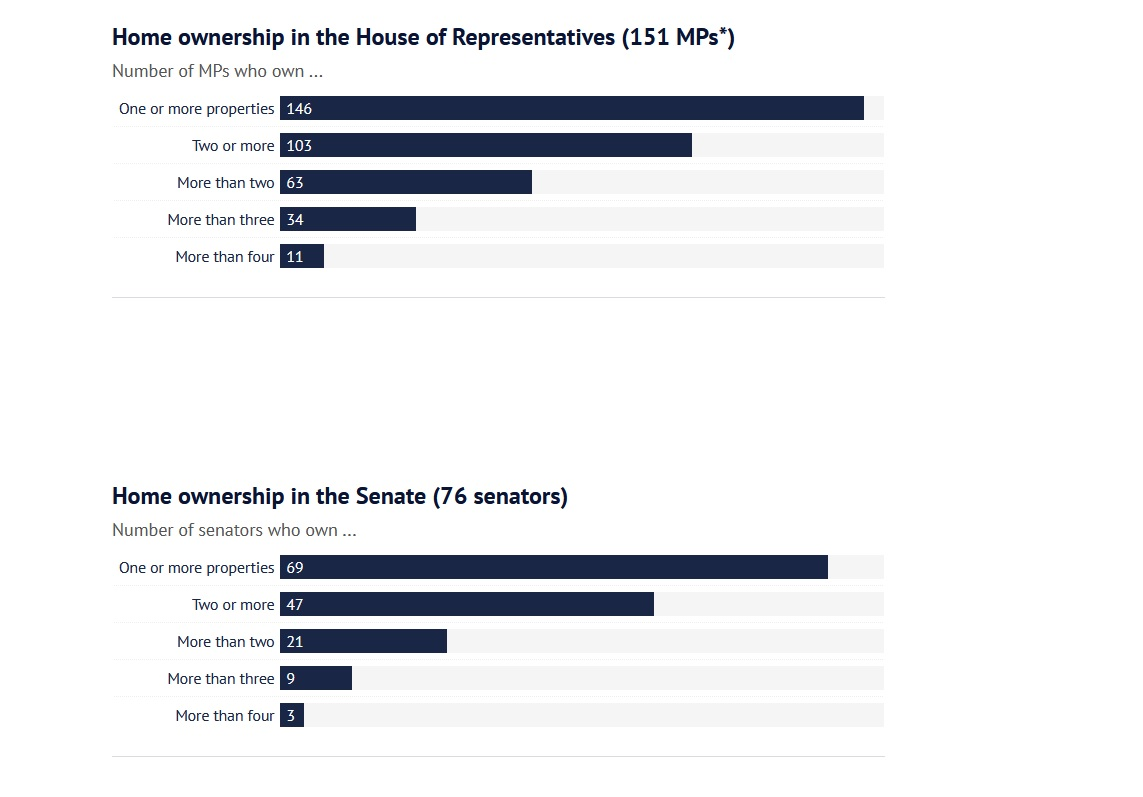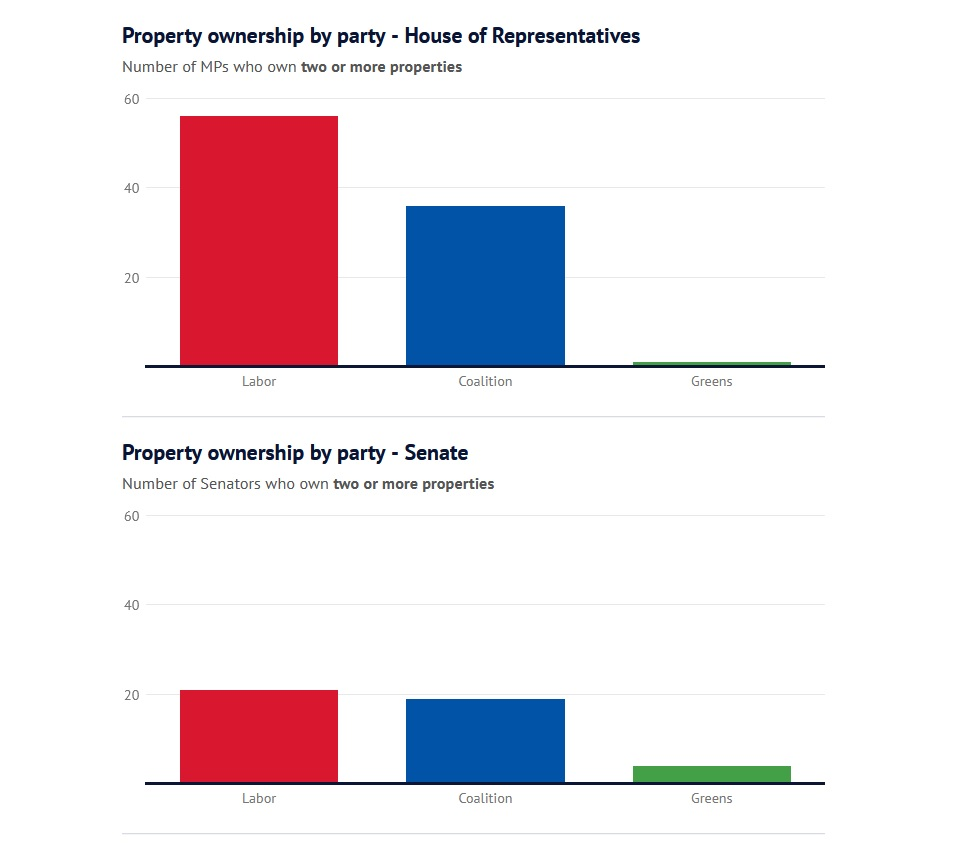Arguably, Australia’s federal politicians are the largest beneficiaries of this century’s boom in Australian property values.
While property ownership among the general population has collapsed, Australia’s federal MPs have accumulated properties en masse, especially by those in the Labor Party.
A new analysis from The SMH shows that a staggering 65% of federal parliamentarians hold two or more properties:

103 of 151 federal MPs own two or more properties, and 88 have declared having at least one investment property.
Labor MPs own the most second homes. 77 members out of 103 in the Labor caucus, or 75%, have declared ownership of two or more properties in their names or their partners’ names.
This beats the Coalition party room, where 55 of its 86 MPs and senators, or 64%, own two or more properties.

A few years back, Australian National University political scientist Patrick Leslie warned the amassing of large property portfolios represents Labor’s abandonment of its working class roots and its embrace of neoliberalism:
“Labor used to be a social democratic movement long ago and it’s shifted”, Dr Leslie said. “They’re more neoliberal than they are social democratic”.
Dr Leslie also claimed the explosion in MP property portfolios was a worrying development:
“It’s certainly the case that as MPs become wealthier than the typical Australian, they might not have the same level of a sense of shared stakes with the people they’re representing when it comes to things like housing reform”.
If you’ve ever wondered why Australian politicians never put meaningful policies in place to address housing affordability, follow the money.
To truly improve housing affordability, home prices must decline. However, because the majority of Australian households are homeowners, any loss in home values results in a decrease in the value of their primary source of wealth.
Our MPs’ high level of home ownership creates a second major disincentive to making fundamental reforms to address Australia’s housing affordability concerns.
Having so much ‘skin in the game’ makes meaningful housing reforms unlikely.

